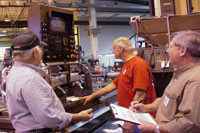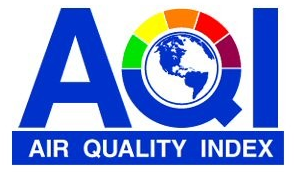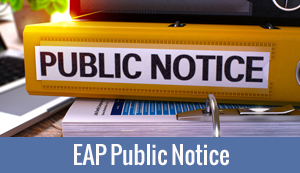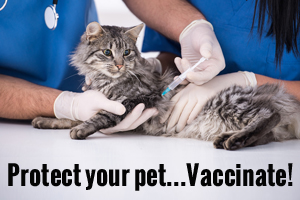 Local, state and federal air quality regulations help protect the quality of our
air by limiting air pollution from industries and other air pollution sources. While
all sources of air pollution must comply with Air Quality Regulations, some industries
and businesses must also apply for Permits to Construct and Operate Air Pollution
sources. Certain other facilities must register their air pollution source or submit
notifications. You should contact our office if you think you might need an Air
Quality Permit, need to Register, or need to submit a notification.
Local, state and federal air quality regulations help protect the quality of our
air by limiting air pollution from industries and other air pollution sources. While
all sources of air pollution must comply with Air Quality Regulations, some industries
and businesses must also apply for Permits to Construct and Operate Air Pollution
sources. Certain other facilities must register their air pollution source or submit
notifications. You should contact our office if you think you might need an Air
Quality Permit, need to Register, or need to submit a notification.
Permitting
If your business, activity or facility emits substances into the outside air, you may need an Air Quality Permit. Permits set forth specific compliance obligations and meet federal and state requirements. Air quality permits ensure that permittees know what their air quality obligations are and how to comply with those obligations.
Permit application fees must accompany all permit applications. Applications will not be processed without fee payment. See permit fees by clicking on the "Fees" tab above.
The rules for determining whether an Air Quality Permit is required are in Section 3Q .0100 of the Forsyth County Air Quality Technical Code (FCAQTC).
Registrations & Notifications
- General Industry
- Dry Cleaning Facilities
- Gasoline Facilities
- Paint Stripping/Surface Coating
- Area Source Boilers
- Generators & Engines
- Chemical Accident Prevention Program 112(r)
Companies that emit small quantities of air pollutants may not need to have an Air Quality Permit or may simply be required to register with us. The rules for determining whether an Air Quality Permit is required are in Section 3Q .0100 of the Forsyth County Air Quality Technical Code (FCAQTC) and companies that are uncertain about whether they need to have an Air Quality Permit are encouraged to contact us for an applicability determination. If you have any questions or need additional information, please contact the Permitting Manager by email or by telephone at (336) 703-2440.
Air Quality Regulations
Chapter 3 of the Forsyth County Code contains the air quality rules and regulations that were modified and adopted by the Forsyth County Commissioners.
Forsyth County Air Quality Control Ordinance & Technical Code
Chapter 3: "Air Quality Control" - This PDF document contains "bookmarks" to go directly to different sections of the Code. After opening the file, you can view the bookmarks by selecting the "Bookmarks" tab on the left side of the screen. If the bookmarks tab is not visible in the pdf document, right click on the left side of the document and then click on “Show Navigation Panes”.
Federal NSPS and NESHAP Regulations
The Forsyth County Code incorporates by reference federal rules and regulations promulgated pursuant to the Clean Air Act, including:
- New Source Performance Standards - 40 CFR part 60
- National Emission Standards for Hazardous Air Pollutants - 40 CFR part 63
- New Source Review - 40 CFR part 51
These Regulations can be accessed at Electronic Code of Federal Regulations - eCFR
Emissions Inventories
Industrial facilities that have an air quality permit are required to prepare and submit an inventory of their air pollution emissions periodically. Facilities submitting an inventory should complete and submit the forms provided below, or contact the us to receive a Microsoft Access database interface for entering this data. See the letter sent to permitted facilities.
These are the forms and information you will need to complete your emissions:
To submit your EI electronically, please contact us for direction.
Emissions Estimation Links You May Find Useful
- NC DAQ Emissions Calculation Spreadsheets
- Technology Transfer Network: Clearinghouse for Inventories & Emissions Factors
- "Glycol Ethers Compilation" Searchable Database
Must I Submit an Emissions Inventory?
Title V sources and non-Title V sources with NOx or VOC emissions greater than 25 tons per year must conduct an emissions inventory annually. Non-Title V sources with NOx and VOC emissions of less than 25 tons per year must conduct an emissions inventory every five years. Facilities should contact the Permitting Manager by email or by telephone at (336) 703-2440, if they think they may be required to submit an inventory but have not been notified.
Regulatory Basis for EI Requirement: Rules 3Q .0207 and 3D .0202 of the Forsyth County Air Quality Technical Code require facilities to quantify actual air pollutant emissions and report the data to the Forsyth County Office of Environmental Assistance and Protection.
Use of EI Data: Emissions inventory data are used in air quality planning, toxic risk assessment, determination of permit fees, satisfaction of Federal emission reporting requirements, and other related purposes.
Permitting Fees
| Facility Category | New or Modification |
New |
2Q-0300, Significant Modification |
Minor Modification | Ownership Change |
|---|---|---|---|---|---|
| Title V | $12,485 | $8,446 | $3,620 | $70 | |
| Title V (PSD or NSR/NAA) | 18,860 | $70 | |||
| Title V (PSD and NSR/NAA) | $36,681 | $70 | |||
| Synthetic Minor | $400 | $50 | |||
| Exclusionary Small | $50 | $50 | |||
| Small | $50 | $50 | |||
| General | 50% of the otherwise applicable fee | ||||
Permit application fees must accompany all permit applications. Applications will not be processed without the proper application fee.
| Facility Category | Tonnage Factor |
Basic Permit Fee |
Nonattainment Area Added Fee |
Complexity Fee (3-6 Programs) |
Complexity Fee (7+ Programs) |
|---|---|---|---|---|---|
| Title V | $48.27 |
$10,588 | $4,894 | $3,017 | $9,050 |
| Synthetic Minor | $1,500 | ||||
| Exclusionary Small | $250 | ||||
| Small | $250 | ||||
| General | 50% of otherwise applicable fee | ||||
All facilities holding an Air Quality Permit during the Forsyth County Fiscal Year (July 1 to June 30) are required to pay the applicable annual fee. Title V facilities are assessed the Basic Permit Fee as well as an emissions fee based on the most recent quality assured calendar year emissions inventory.
| Demolition | The greater of the following not to exceed one thousand five hundred dollars ($1500): |
| Renovation | The greater of:
|
Applicants should refer to the Asbestos NESHAP Application/Notification Form for additional information.
Fee Payment
All fees are non-refundable and must be made by check or money order payable to:
Forsyth County General Fund Fee payments should be delivered to:
Forsyth County Office of Environmental Assistance and Protection
201 North Chestnut Street
Winston-Salem, NC 27101
Section 3Q-0200 in Chapter 3 of the Forsyth County Code contains the rules pertaining to permit fees. For more information regarding permit application fees, please contact us.
Permitted Facilities
Copies of the permits issued to larger facilities in Forsyth County are reviewable here in PDF format. These facilities are subject to the federal “Title V” permitting program. Facilities are subject to Title V permitting requirements if they have the potential to emit 100 tons or more per year of carbon dioxide, nitrogen oxides, sulfur dioxide, volatile organic compounds, or particulate matter of 10 microns or smaller. Facilities may also be subject to Title V permitting if they have the potential to emit 10 tons per year of a single hazardous air pollutant or 25 tons per year of a combination of hazardous air pollutants.
Title V Air Quality Permits:
- Ingredion Incorporated, Winston-Salem Plant
- Ardagh Metal Packaging USA Corp
- Tri-Seal Opco, LLC
- Hanes Mill Road Municipal Landfill
- R.J.Reynolds – Tobaccoville
- Highland Industries, Inc.
- R.J.Reynolds - Whitaker Park
- Classic Packaging Company
Notices requesting public comment on draft Title V permits for significant modifications and renewals are posted on our Public Notices page.
Other Air Quality Permits: Please contact us for copies of other air quality permits. List of Permitted Facilities
Links
Emissions Estimation
- NC DAQ Emissions Calculation Spreadsheet
- Technology Transfer Network: Clearinghouse for Inventories & Emissions Factors
- Substance Registry System
Compliance Assistance
- NC Small Business Assistance Center
- NC Division of Pollution Prevention and Environmental Assistance









